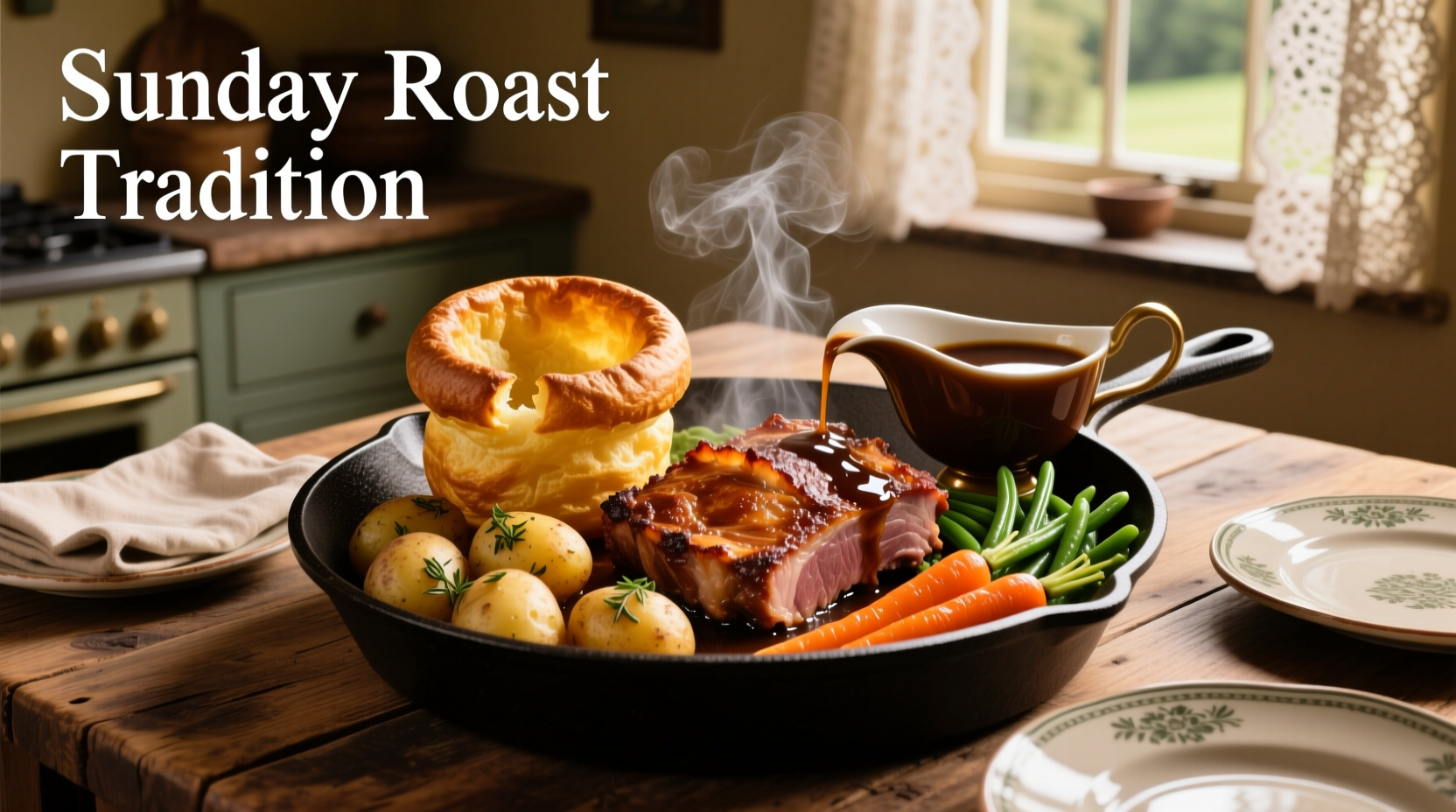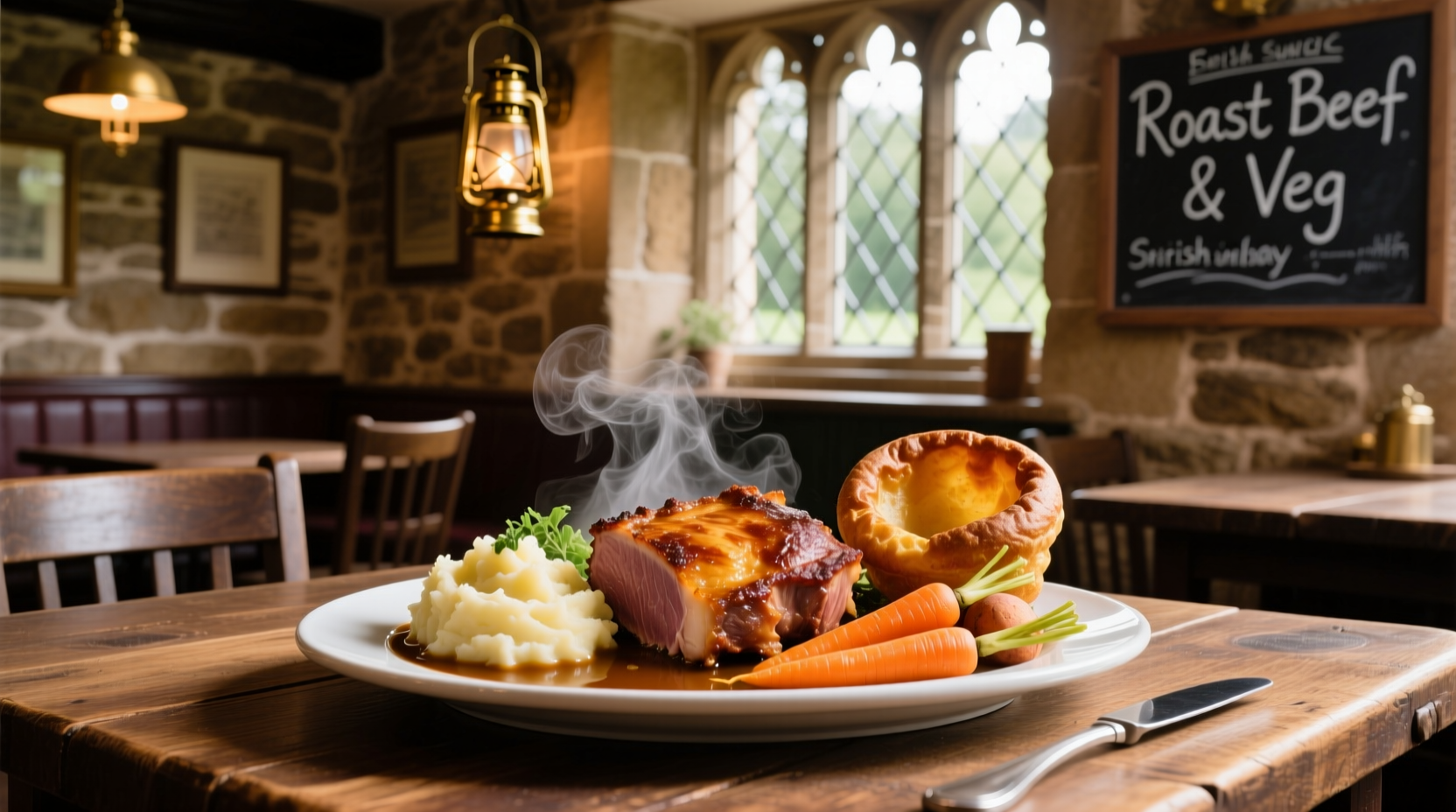When travelers ask what type of food do they have in England, they often expect bland stereotypes. The reality reveals a rich culinary tapestry where centuries-old traditions meet vibrant global influences. Modern English cuisine has evolved far beyond outdated perceptions, offering everything from historic meat pies to innovative gastropub creations and world-class international dishes.
Setting the Record Straight: England's Culinary Reality
Contrary to persistent myths, England boasts one of the world's most dynamic food scenes. The notion that English food lacks sophistication stems from post-WWII rationing periods that temporarily limited culinary development. Today's English cuisine represents both preservation of heritage dishes and enthusiastic adoption of global flavors through centuries of trade and recent immigration patterns.
Historical Evolution of English Cuisine
English food traditions developed through distinct historical phases that shaped what type of food do they have in England today:
| Historical Period | Key Culinary Developments | Enduring Legacy |
|---|---|---|
| Medieval Era | Heavy use of spices from trade routes, meat-centric dishes | Yorkshire pudding origins, pie traditions |
| 18th-19th Century | Industrial revolution creates "meat and two veg" culture | Roast dinners, fish and chips, full English breakfast |
| Post-WWII | Rationing impacts food quality and variety | Temporary culinary stagnation (source of "bad food" myth) |
| 1970s-Present | Immigration brings Indian, Caribbean, and other global cuisines | Curry became national dish, multicultural food scene |
Traditional English Dishes Worth Knowing
Understanding what type of food do they have in England requires exploring these foundational dishes:
Iconic Breakfasts
The full English breakfast—eggs, bacon, sausages, baked beans, grilled tomatoes, mushrooms, and toast—originated during the Industrial Revolution as hearty fuel for laborers. Regional variations exist: the 'Cockney' version includes jellied eels in London, while the 'Devonshire' features local clotted cream on toast.
Classic Main Courses
Sunday roast dinners represent England's culinary heart, typically featuring roasted meat (beef, chicken, or lamb), Yorkshire pudding, roasted potatoes, vegetables, and gravy. According to Historic UK, this tradition dates to 16th century Yorkshire where cooks used meat drippings to create the now-famous pudding.
Fish and chips, England's most famous export, became popular in the 1860s when fried fish vendors met potato chip sellers. The National Fish and Chip Awards, running since 1955, highlight how seriously England takes this tradition.
How Global Influences Transformed English Food
Modern England features one of the world's most diverse food landscapes. The Office for National Statistics reports that 27% of restaurants in England serve Indian cuisine, making curry arguably the country's unofficial national dish. Chicken tikka masala, often cited as England's most popular dish, was likely invented in Glasgow but became a staple across England.
Caribbean influences brought jerk seasoning and patties, particularly in London and Birmingham. Chinese takeaways appeared after WWII, with British Chinese cuisine developing unique dishes like sweet and sour chicken. More recently, Middle Eastern flavors have gained popularity through dishes like shawarma and falafel.

Regional Specialties Across England
What type of food do they have in England varies significantly by region:
- Northern England: Lancashire hotpot (slow-cooked lamb stew), black pudding, and parkin cake
- Midlands: Staffordshire oatcakes, Derbyshire plum bread, and Lincolnshire sausages
- Southern England: Hampshire bacon, Sussex pond pudding, and Cornish pasties
- London: Reflecting its diversity with everything from Brick Lane curries to Borough Market artisanal foods
The Modern English Food Renaissance
England's culinary scene has transformed dramatically since the 1990s. The Michelin Guide now lists 112 starred restaurants across England, with chefs like Heston Blumenthal and Raymond Blanc leading a movement that respects tradition while embracing innovation. The farm-to-table movement has strengthened connections between English producers and restaurants, with 68% of Michelin-starred English restaurants now highlighting local ingredients according to the Sustainable Restaurant Association.
Gastropubs—pubs serving high-quality food—have become cultural institutions, blending casual atmosphere with sophisticated cooking. Dishes like elevated fish and chips with heritage-breed pork or foraged ingredients demonstrate how traditional English food has evolved while maintaining its identity.
What to Eat in England: Practical Guide
Visitors seeking authentic English food experiences should consider:
- For traditional breakfast: Try a proper full English at a local pub rather than tourist spots
- For Sunday dinner: Book ahead at a gastropub for authentic roast dinner
- For multicultural experience: Visit London's Brick Lane for curry or Brixton Market for Caribbean food
- For regional specialties: Seek out Cornish pasties in Cornwall or Yorkshire puddings in Yorkshire
Seasonality matters in English cuisine. Spring brings fresh asparagus and lamb, summer offers strawberries and game birds, autumn features mushrooms and game, while winter highlights root vegetables and hearty stews.
Debunking Common Food Myths About England
Several misconceptions persist about what type of food do they have in England:
- Myth: English food is bland
Reality: Traditional English cooking uses herbs rather than heavy spices, but modern English cuisine incorporates global flavors - Myth: English people only eat fish and chips
Reality: While popular, fish and chips represent just one aspect of diverse English food culture - Myth: Afternoon tea is just for tourists
Reality: Many English people enjoy proper afternoon tea regularly, especially outside major tourist centers
The British Hospitality Association confirms that 78% of English restaurants now offer internationally influenced menus, demonstrating how England's food culture has evolved while maintaining distinctive traditions.











 浙公网安备
33010002000092号
浙公网安备
33010002000092号 浙B2-20120091-4
浙B2-20120091-4